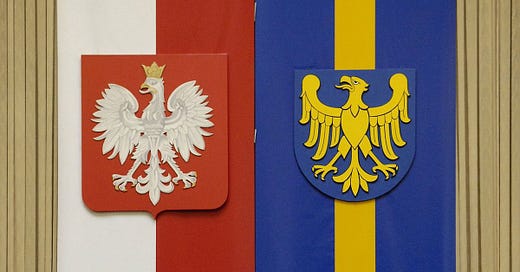Language politics: localism or globalism?
What are the motives behind the push to recognise "Silesian"
The Polish Sejm, or more specifically the parties backing the Donald Tusk regime, has recently voted to recognise Silesian dialects as a distinct “language” from Polish. The proposal was opposed by nationalist and conservative parties who quite rightly believe the real agenda is the weakening of Polish unity and national identity.
There is a widespread suspicion in Poland that the agenda behind recognising Silesian as a separate language could lead to separatism, with politicians from PiS long warning that Germany (and the EU elite) and Russia have an obvious interest in fomenting this kind of division in Poland. Silesian regionalist movements traditionally align with left-liberals against the national conservative forces.
Such suspicions, of course, are not unique to Poland. For many years prior to Brexit, British Eurosceptics have harboured similar suspicions about the role of EU policy and networks in encouraging, at least implicitly, regional and minority identity politics in countries such as Britain and Spain, weakening national unity and the nation-state.
Part of it of course has been the question of whether Silesian can be considered a dialect or language in its own right - the long accepted view is that it is insufficiently distinct to be considered as such. This is not the case regarding Kashubian, which is accepted and recognised as a distinct language in its own right. Kashubian language activists have been divided over this, and some of the most prominent have been sceptical.
But the other more pressing question is, whose agenda does it serve? As mentioned above, there is a long-held suspicion that some EU elites and foreign powers see an interest in encouraging regionalism and separatism in order to weaken nation-states and provide a gateway to greater interference. No doubt Western governments have done it, but so do Russia, China, Turkey, Azerbaijan and others (even as they may marginalise minority languages and cultures within their own borders).
Like Polish nationalists, Iranian nationalists fiercely oppose movements promoting ethnic identity politics in Iran and see them as agents of various powers who have an interest in weakening Iran’s national unity and identity. Even if cultural diversity within one’s national borders is not denied, the real issue here is the promotion of regional identity politics (regionalism and outright separatism) is rightly perceived as working against national interest. That’s what it’s about - such movements working as tools of foreign powers against national interest.
What appears to be localist movements may in fact be tools of those seeking globalist or imperialist agendas of their own. Which explains the lack of consistency on such matters to begin with.
Polish nationalists are right to be suspicious of any minority-based agenda, as Iranian nationalists are rightly hostile to such agendas as well.



